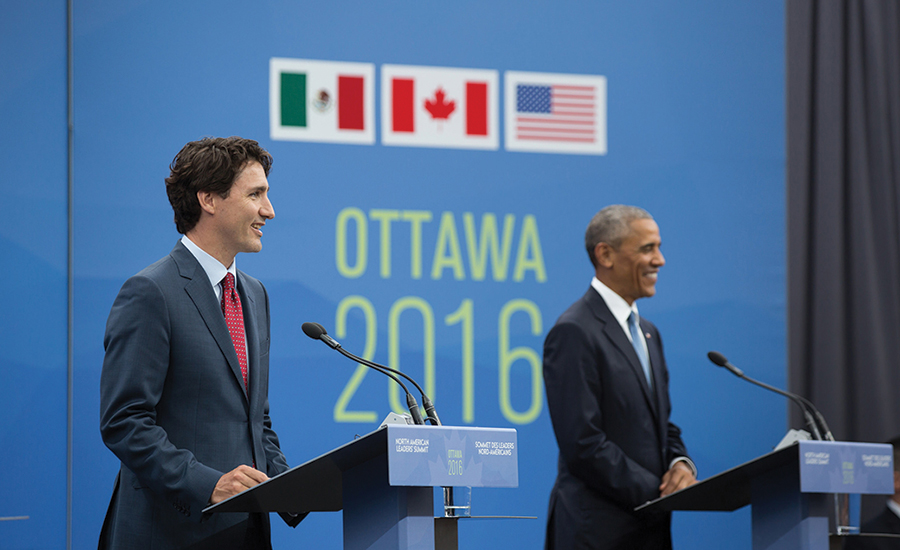The long bilateral battle over Canadian softwood lumber exports to the U.S. may be heading for another critical point. With the Oct. 12 expiration of the countries’ one-year moratorium on filing lumber trade actions against each other, a U.S. lumber group is threatening to file a complaint against Canada. A Canadian organization says it is ready to defend against such charges.
Still, the U.S. and Canada “are committed to continuing negotiations in an effort to achieve a durable and equitable solution continuing long-running talks aimed at a new agreement,” U.S. Trade Representative Michael Froman and Canadian Minister of International Trade Chrystia Freeland said on Oct. 12.
But Suzanne Beall, National Association of Home Builders (NAHB) federal legislative director, says, “We don’t think that there is going to be any negotiated agreement any time soon. We fully anticipate litigation.” She adds, “The two sides are just too far apart for an agreement to come to fruition.”
Froman and Freeland said that, in June, President Obama and Prime Minister Justin Trudeau told their negotiators to reach a deal that would include a Canadian export market-share level “with the stability, consistency and flexibility necessary to achieve the confidence of both industries.”
Beall notes that, earlier this year, the U.S. offered a 25% market-share cap for Canadian lumber exports, decreasing gradually to 22% over a period of years. Canadian lumber’s current U.S. market share is about 28%, according to NAHB. Softwood lumber is an important material in housing construction.
A 25% cap would result in a 4% decline in lumber supply and a price hike of more than 30%, Beall says. Canada’s 2015 softwood lumber exports to the U.S. were $4.5 billion in current U.S. dollars, up 7% from 2014, according to Statistics Canada.
U.S. and Canadian lumber groups say they support a negotiated solution, but they also say they are getting ready to take other steps. The U.S. Lumber Coalition, which contends Canada has unfairly subsidized lumber sales to the U.S, said that, with the end of the moratorium, it “has no choice but to move to initiate trade cases against unfairly traded imports from Canada at the most effective time.”
Susan Yerkovich, president of the BC Lumber Trade Council, Vancouver, said the group is “fully prepared and working alongside the Canadian government to defend the industry against any potential trade actions brought by the United States, as we have done successfully in the past.”
In 2006, the two sides signed a six-year agreement that deals with Canadian lumber pricing and export volume. In 2012, they extended the pact to October 2015. Richard Garneau, president and CEO of Resolute Forest Products Inc., Montreal, called the 2006 agreement “incredibly destructive, particularly for central Canada.” The one-year “standstill” on trade litigation followed the three-year extension.



